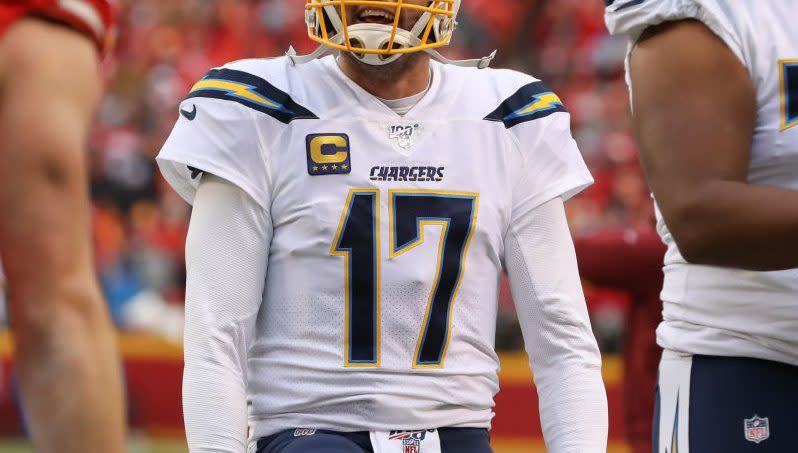The NFL and NFL Players Association are working toward a new Collective Bargaining Agreement not because a new league year is coming but because something far more significant is in the pipeline: A new round of TV deals.

profootballtalk.nbcsports.com
TV negotiations continue to hover over CBA talks
The NFL and NFL Players Association are working toward a new Collective Bargaining Agreement not because a new league year is coming but because something far more significant is in the pipeline: A new round of TV deals.
A recent item from Andrew Beaton of the
Wall Street Journalechoes concepts that have been articulated here, on
PFT Live, and on #PFTPM in recent weeks. The league and the union want to get a labor agreement in place so that the league can then turn to extending the various broadcast-rights contracts, before the NFL’s bargaining position in that context is weakened by a ratings dip fueled by the presidential election, by an economic downturn, or both.
That’s the core wisdom of NFLPA executive director DeMaurice Smith’s ongoing effort to get the Executive Committee (which seems to be on board), two thirds of the board of player representatives (which remains not an easy sell), and at least half of the rank and file plus one (which will likely go along if/when it comes to it) to accept the pending CBA proposal premised on 17 games. Smith knows from experience in 2011 that the players ultimately won’t miss game checks. Which means that the players ultimately will take the best deal that’s on the table on the brink of the 2021 preseason/regular season. Which means that the players should just take the best deal that’s on the table now.
Which remains a delicate proposition when the time comes to explain it to the players. If the players believe that their resolve is being doubted or that their courage is being questioned, they could decide to refuse the deal simply to prove that they’re not weak. Even if, in the end, they’d be in a much weaker spot.
Indeed, here’s the best reason take the best deal that’s on the table now. If the TV deals aren’t as good as the league thinks they’ll be if the TV deals can be accomplished within the next few months, the eventually shortfall won’t be shared by the league and the players. The players likely will pay for the bulk of the money lost via the lost opportunity to get the TV deals done, in the form of a financial package that passes on to the players the reduced revenue resulting from networks willing to pay less in the aftermath of declining ratings in 2020 and/or shrunken budgets triggered by a recession.
That’s why Smith is trying to get it done now, and that’s why it’s smart to do so. It’s also why players who are inclined to huff and puff about not playing 17 games need to realize that, if they’re not willing to blow the house down over adding an extra regular-season game, a delay could result in getting their ox gored.







